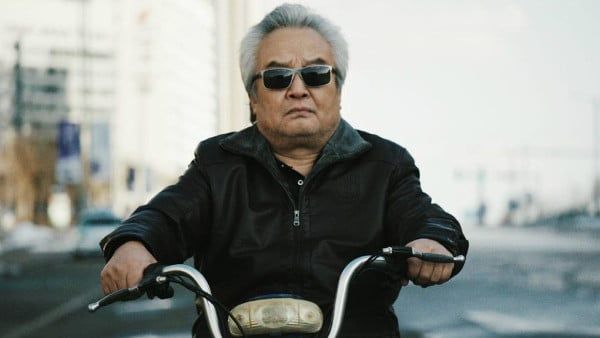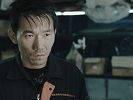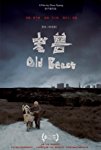Eye For Film >> Movies >> Old Beast (2017) Film Review
Old Beast
Reviewed by: Jennie Kermode

For the last two decades there has been a tendency in China for the younger generation – those born under the One Child Policy – to be portrayed as selfish and entitled, leaching off the hard work of earlier generations (not entirely unlike the way Millennials are portrayed in the West). Now, however, members of that generation are close to outnumbering their elders, and the tide is beginning to turn. Old Beast, helmed by 34-year-old Ziyang Zhou, sees younger relatives horrified by the misbehaviour of an older man who is willing to exploit everyone in his path – even his ailing wife – to fulfil his petty ambitions.
We first see Lao Yang when he is riding is motorbike through deserted streets. He presents a cartoonish figure, dwarfed by the bike and framed in such a way that his head – with its carefully structured coif – looks too big for his body; this foreshadows his cartoonish behaviour. It is perhaps no coincidence that veteran actor Tumen has been cast in the role, given his former successes playing Genghis Khan; this is very much a tale of a man once regarded as great who has gone to seed, tyrannising those around him. Lao Yang gambles away money that his wife needs for medical treatment, steals from his friends and tries to borrow from his younger relatives. He drinks heavily, visits saunas and lavishes attention on his mistress. It’s a game that can’t go on, but neither can he, and there is a satirical aspect to this characterisation of an ageing monster sapping the resources of those around him.

The setting is important. Just after the turn of the millennium, the Chinese government, concerned about overcrowding in some major cities and keen to promote economic development in other areas, began a programme of investment in the construction of new cities wherever there was the prospect of industrial success. Founded in a coal mining area in Inner Mongolia was Ordos, a city with spectacular architecture reminiscent of Fifties science fiction utopias. No other new city was so large or so ambitious – and none failed so spectacularly.
Today, only a third of Ordos is inhabited. Lao Yang, cruising through its streets on his bike wearing the old-fashioned shades he still thinks are cool, might as well be trying to make an impression on ghosts. His borrowing from Western fashion and behaviours ironically labels him as part of China’s past. The younger characters in the film are not presented as saints but are seen going about their lives in a calm and pragmatic way. The one point on which they really differ from their grandparents’ generation is in their refusal to honour their elders simply out of duty – they expect the Beast to take responsibility for himself.
Though a little too crude to work as powerfully as it might in dramatic terms, Old Beast is nevertheless an important film, and a bold one to make considering the politics of state funders and censors. It’s a rallying cry for change and a bold statement on the part of a generation now ready to ascend to power. A new China is finding its voice, and it’s worth listening to.
Reviewed on: 25 Feb 2018















